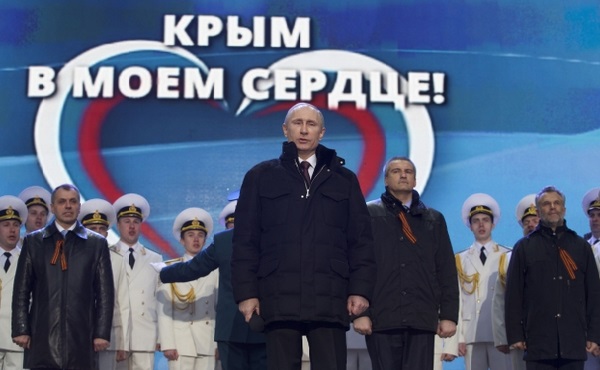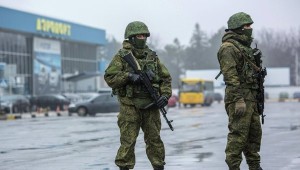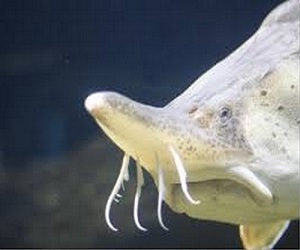Annexation of Crimea 2014
Crimea in my heart!. Putin’s annexation of Crimea from Ukraine in 2014.
Throughout centuries Crimea has been the “trophy” for many states and empires. Its history is a succession of bloody wars for the purpose of possessing this piece of land. The Crimean annexation of of 2014 reminds us of the first annexation by Catherine the Great in 1783. Catherine was determined to continue her territorial ambitions after her victory in the Russian-Turkish war even violating the Peace Treaty of Kϋϛϋk Kaynarca in which Russia and Turkey accepted the independence of the Crimean Khanate. Her annexation of Crimea was seen as a huge success of Russia’s foreign policy as European courts ultimately accepted the appropriation of Crimea. During modern history, humanity has become a little more civilized but the idea of world domination and geopolitical power has stayed in some statesmen’s minds.
The latest crisis in Crimea began when the democratically elected Ukrainian president, Viktor Yanukovich, was unable to reach a truce with opposition leaders. Threatened with increasing violence he fled the capital and was stripped of his presidential powers. The interim government led by Oleksandr V. Turchynov scheduled new presidential elections for May 25 when businessman Petro Poroshenko was elected president.
The Russian government started mobilizing troops on February 28, 2014 to protect its large ethnic Russian population in the region as well as economic, historical and military ties. The Russian Black Sea Naval base is located in Sevastopol. Simferopol, the capital, and the two main airports were taken over by Russian forces, they also captured the Crimean Parliament and police stations.
Crimea is a multicultural region with a Russian majority. It enjoys greater autonomy and has its own Parliament. On March 6, 2014 the Crimean Parliament approved a referendum on whether to secede from Ukraine and become part of Russia or to maintain greater autonomy within Ukraine. The referendum took place on March 16 and an overwhelming majority voted to become part of Russia. The City Council of Sevastopol, which has a special status, had a separate referendum and followed the same route as the Crimean Parliament.
The government of Kiev has ruled the Crimean Parliament’s vote and the referendum illegal. EU leaders and the American government consider the referendum also illegal and contrary to the Ukrainian Constitution. The government of President Obama issued first punitive actions against a specific number of Russian citizens, which include visa bans on military officials and individuals responsible for undermining Ukrainian sovereignty in Crimea. The EU was initially reluctant to move quickly towards applying sanctions mostly to avoid confrontations reminiscent of the Cold War and because the continent has a heavy dependency on Russian gas and oil. However, after the annexation by Russia, EU governments issued similar punitive actions as the American’s.
The large Russian population of Crimea supports Russia over Ukraine but the increasingly large Tartar minority considers the referendum illegal. This could be a factor in the fate of the peninsula.
Category: Annexation of Crimea



